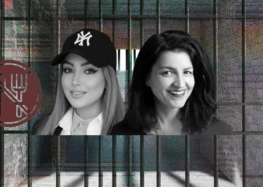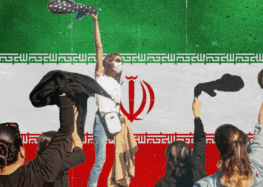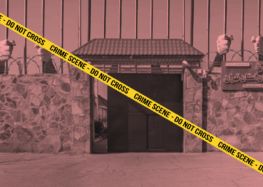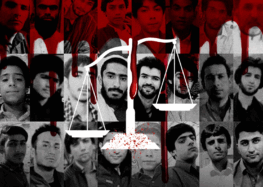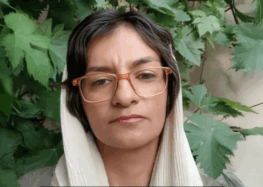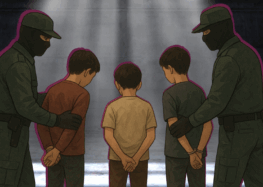Environmentalist’s Facebook Account Hacked, Used to Deny Her Detention while She Was Still Behind Bars
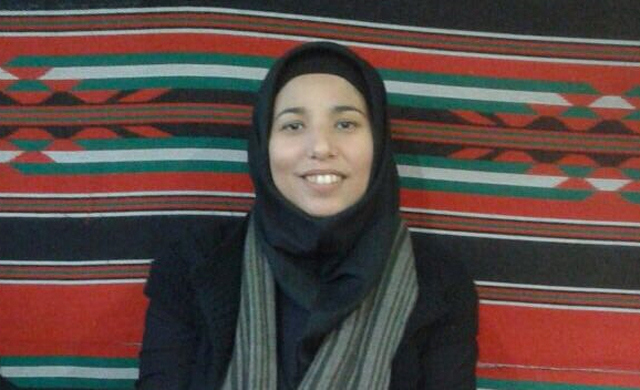
Zakiya Neysi’s Father Forced to Sign Pledge Prior to her Release
The day after environmental activist Zakiya Neysi was arrested by intelligence agents in the southwestern Iranian city of Ahwaz, a posting appeared on her Facebook account declaring that she had returned home and denouncing one of her brothers. But the young woman was still in detention at the time.
Zakiya Neysi, 26, was released on May 20, 2016 after spending four days in detention. Her brother, Mosab Neysi, told the International Campaign for Human Rights in Iran that prior to her release, her father was told to sign a letter pledging not to allow his daughter to participate in “protests without a permit.”
Mosab Neysi also told the Campaign that the day after she was arrested on May 17, 2016, the strange post appeared on Zakiya Neysi’s Facebook page saying she had returned home.
“This is very strange because the Facebook note says that she is safe and at home and that she was only taken in for simple questioning, but the fact is that she is in detention,” he told the Campaign on May 18, 2016. “We don’t know if the agents posted it or she was forced to post it. But in any case, it’s a lie and she has still not been released.”
The post said: “I, Zakiya Neysi, am in perfect health. I was summoned to the intelligence office [in Ahwaz] on May 17, 2016, and questioned with the utmost respect about environmental activities, within the laws of the Islamic Republic. The interview lasted one hour and then I returned home safe and sound.”
The post also denied “reports by enemy and anti-revolutionary media” about agents confiscating Zakiya Neysi’s personal belongings, adding: “Unfortunately these reports are complete lies… that have been published with the help of my brother, known as Yaqub Hor, who is a murderer and an anti-revolutionary.”
Mosab Neysi added that when his father went to the intelligence office in Ahwaz while Zakiya Neysi was in detention, he was prevented from seeing her and was instead warned not to speak to the media about her case. Her father also refused the agents’ request at that time to declare in front of a camera that Zakiya Neysi had been freed after questioning.
Mosab Neysi also told the Campaign that his family was kept in the dark about the nature of the charges against his sister while she was in detention.
“My father has been told that my sister will be released soon,” said Mosab Neysi on May 18, 2016. “We hope she will be freed soon because Zakiya has not been involved in any political activities and her detention makes no sense.”
Prior to his sister’s release, Mosab Neysi told the Campaign that Zakiya Neysi, who had previously campaigned to save the Karoon River from drying, was arrested on May 17, 2016 when agents from the Intelligence Ministry raided the family home in Ahwaz, the capital of Khuzestan Province, where most of Iran’s Arab population lives.
“They searched the house and confiscated Zakiya’s personal computer and writings,” he said. “My father asked several times if they had a search warrant, but they did not answer. They did not say why she was being arrested either.”
Prior to his sister’s release Mosab Neysi, who lives in Denmark, told the Campaign that he suspected that Zakiya Neysi was being punished because of the Arab separatist activities of her two older brothers.
“Zakiya has not done anything to deserve being arrested,” he said on May 18, 2016. “We think it’s likely that she was arrested because of me and our brother [Yaqub Hor Neysi], who is one of the main members of the Arab Struggle Movement for the Liberation of Ahwaz, which opposes the Islamic Republic.”
“I am not a member of this party, but I do cooperate with them,” added Mosab Neysi. “But Zakiya was the only daughter in the family and was not involved in any political activities.”
Zakiya Neysi holds a graduate degree in agricultural engineering. She had previously posted information on Facebook about environmental issues, particularly air pollution in Ahwaz and the dwindling supply of water in the Karoon, Iran’s largest river.

